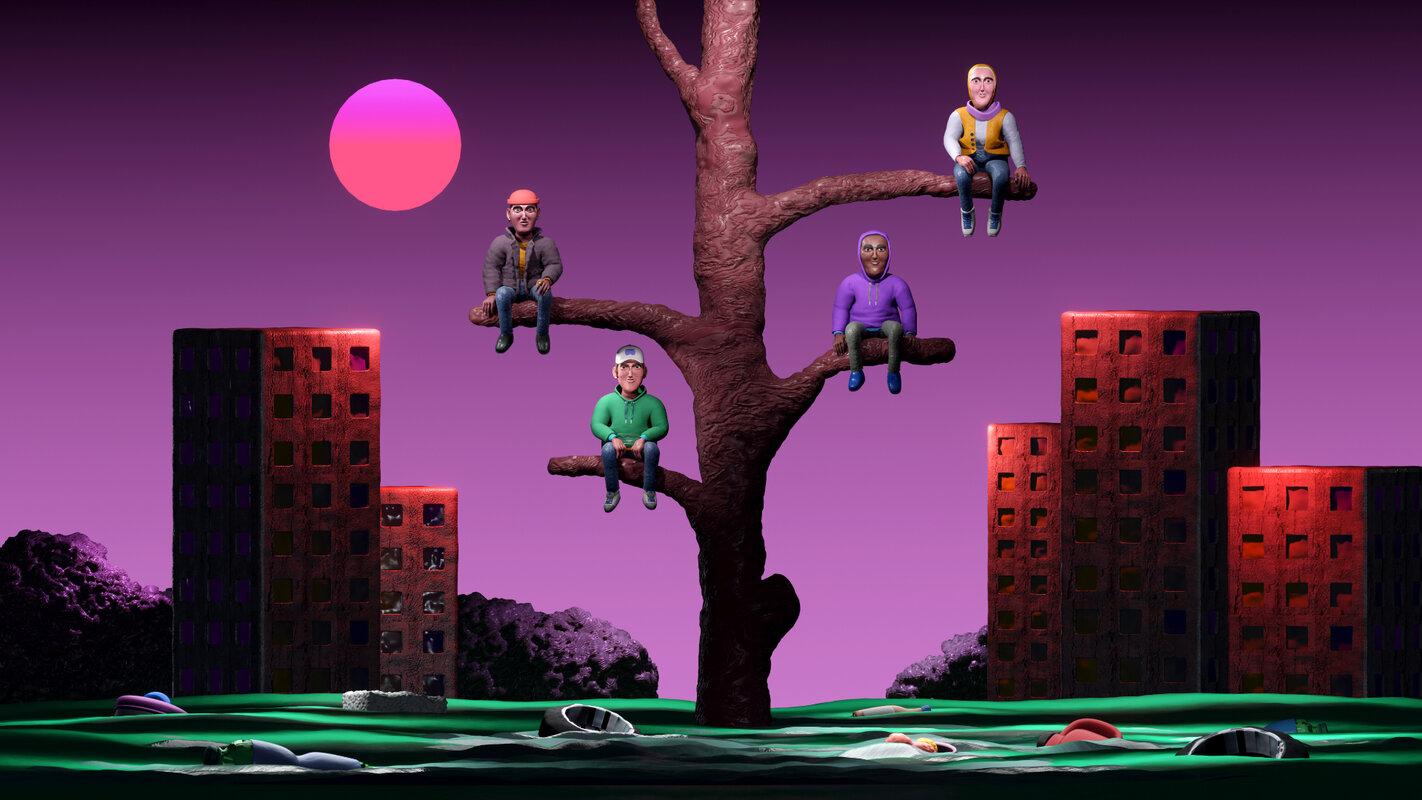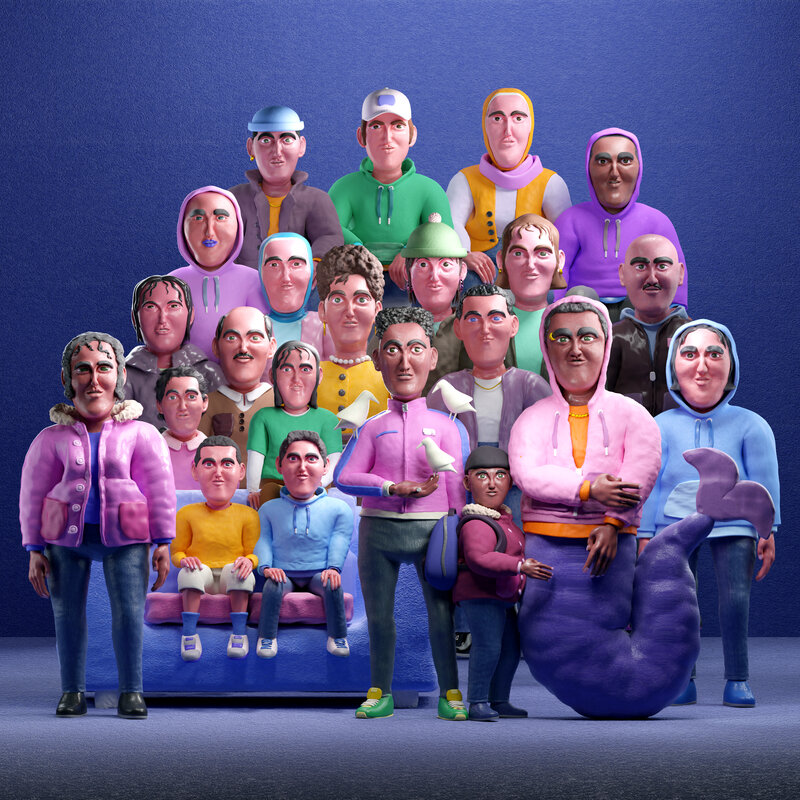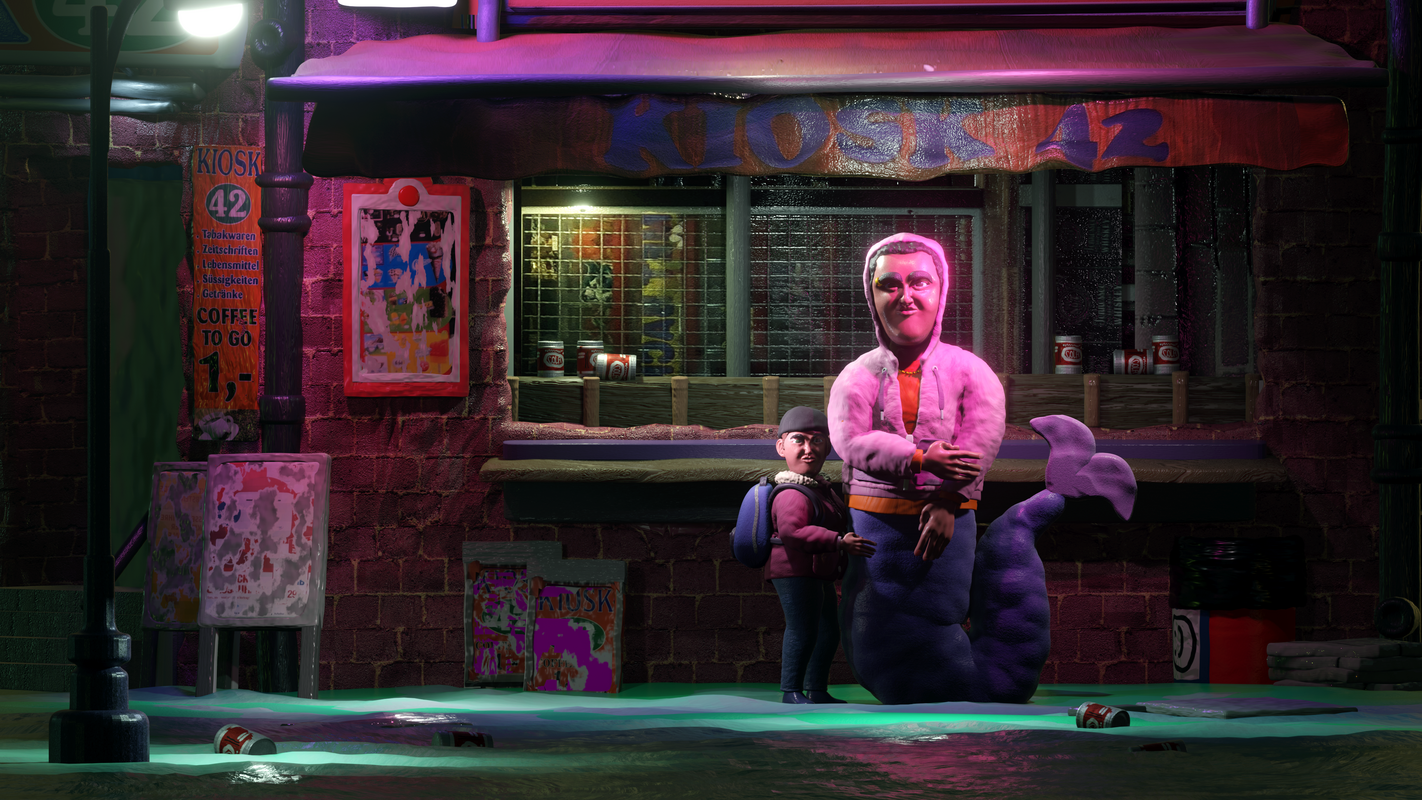
Raman Djafari: Doubt Is Beautiful
Raman Djafari is a Hamburg-based illustrator, animator and filmmaker working in both 2D and 3D. Through colourful imagery and fragmented narrative, he reaches into a realm of honest emotionality and wilful fragility, creating surreal worlds and characters that oscillate between the familiar and the fantastical. He has directed music videos for artists across the globe, working with labels such as Monkey Town and Downtown Records, as well as other clients like Adult Swim, Medium and The New Yorker. He is currently represented as a director by the London based animation studio Blink Ink.
Pictoplasma: Is there one quality that underpins your work, and if so, can you say something about it?
Raman Djafari: Almost everything that I do is an attempt to grasp a certain kind of emotional fragility, to go deep into the feelings that make you feel insecure and vulnerable, that make you feel like you might not be up to a task. The works are always, in a way, a fragmented take on reality. I try to put into my work this feeling of the simultaneous, of all kinds of things, of feelings, of other people, of experiences, as you perceive the world.

This seems to be very much at the core of your animation I want to Be the Ocean. Can you explain what this film is about?
I Want to Be the Ocean was a very short exploration of a theme that is very dear to me, the theme of doubt. I find beauty in doubt, because I think that it is something that is – at least this is how I perceive other people talking about it – something to be avoided. That it makes you weak or inferior if you doubt yourself. But I think that's a super-patriarchal notion – that you always have to assert dominance and know what you are doing. I feel like doubt is actually a beautiful quality. It's the quality to perceive other people's perspectives and consider that you might only have a small fragment of what reality is.
I wanted to create this feeling of the structure of a poem. As they are saying a poem within the film, I wanted the film to feel structurally like a poem. And again, that's a take on breaking these kinds of habits that we all absorb in media. We get these narratives that are also always super linear, these hero journeys that go forward and tell this very clear story. For me, writing a poem as a base of a story and editing the film like a poem was a way to dissolve this. And the poem itself formulated during the process of making the film, so it was very interactive. The shots spoke to the poem, the poem spoke back to the visual language.
I Want to Be the Ocean
I doubt myself.
I doubt myself because I failed
once and I might fail again.
I doubt myself because
I am so much like my father.
I doubt myself because I
struggle with overeating.
I doubt myself because I left
the window open in the rain.
I doubt myself because you
didn't say you love me.
I doubt myself because
I hurt you without knowing.
I doubt myself because I'm
uncertain and forgetful.
But I don't doubt the ocean.
I want to be the ocean.

How would you describe your process in making the film?
R: In this process of writing the poem and making the film, the illustration work is in dialogue with the poem. I find ideas in the making that speak back to me and hear something in me. When I found these last words, this line, “I Want to Be the Ocean”, which became the title of the film, I could really resolve an angst in myself. It was this desire to relinquish the solving, of letting go, of trying to ... having to be something, of being forced into some kind of personality, into a perception of gender that you are being told you have to be. And this is, for me, what is really beautiful about art-making, that it's not as though I have to have a premeditated idea that I put on paper, and it's done. It's more a way of interacting with reality and learning about reality through the making.
You recently directed the video for Elton John and Dua Lipa’s song Cold Heart and worked with a much bigger team. How did that come about?
I pitched it, together with some other directors, and the team of Dua Lipa and Elton John liked my pitch and that’s it! But pitching is a really fucked-up system, and I don't have a clear way to deal with it yet, but basically, you ask six people to work a lot on a concept and then you pay only one. I just got lucky in this case, but I’ve previously pitched five projects and none of them happened. Normally, I put a week into a pitch, but for this one, I did it really fast because I thought I couldn’t put another week into a pitch that I would lose. So, I did it in just two hours, and I won. Maybe that's the magic. I don't know. But yeah, it's weird. It's not something that we should continue as an industry, I think.
Interview by Pictoplasma published in Pictoplasma Magazin – Issue 2: Character Care, 2022
